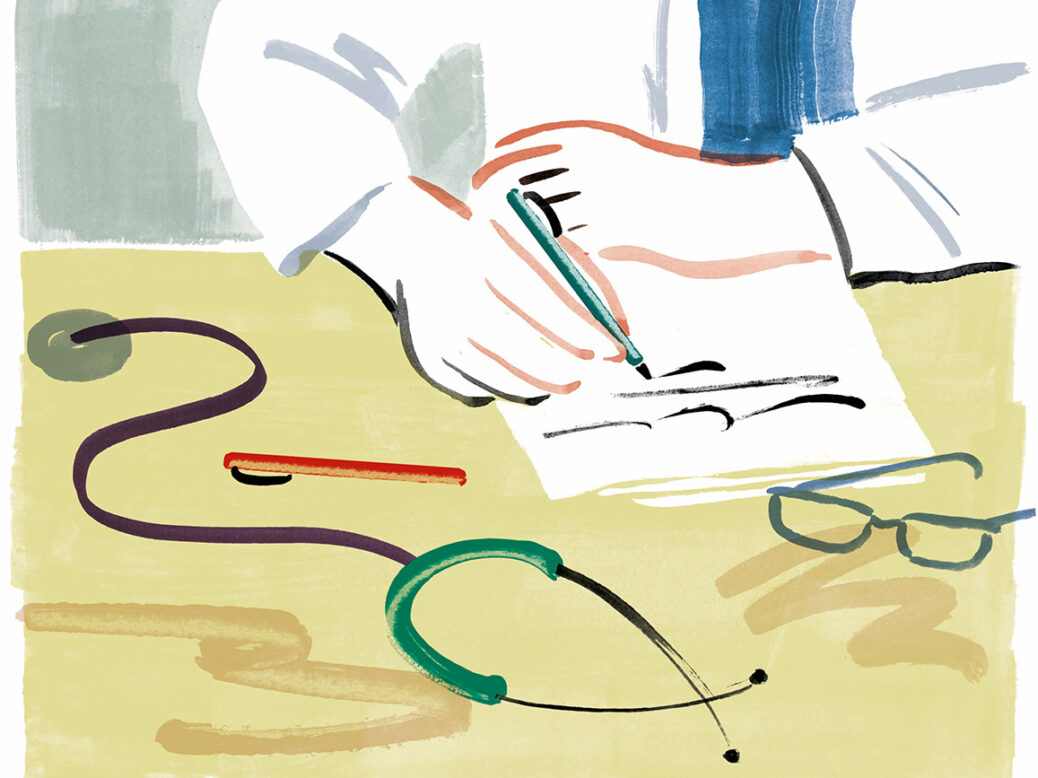
At time of writing, an outbreak of acute hepatitis of unknown origin in children has reached 228 cases across 20 countries globally. The UK has by far the greatest incidence, with 145 patients affected since January. This is either because we’re the disease epicentre, or our surveillance and reporting systems are picking up cases that are going unnoticed elsewhere in the world.
The illness appears severe, though there could be milder cases that aren’t getting diagnosed. There has been one confirmed death (not in the UK) and 17 liver transplants. Most cases are in under-fives, but children of all ages have been affected. The cause is unknown but the relative prominence being given to differing theories speaks to the biases and anxieties of those charged with investigating such things.
The front-runner, according to the UK Health Security Agency and the US Centers for Disease Control, is a usually trivial pathogen called adenovirus 41. It’s the commonest infectious agent being isolated by the batteries of tests performed on each hepatitis patient. Equally, it is not being detected universally, being found in 75 per cent of the English case series and fewer than 50 per cent of those in Scotland. Various other pathogens, including Covid, have been picked up by the blanket testing regimes, albeit in lower percentages of cases.
[See also: Covid might seem less lethal, but the pandemic is far from over]
Is adenovirus 41 the culprit? That certainly seems to have morphed from hypothesis to assumption in studies in both the US and France, where isolation of adenovirus 41 is required for a patient to be included in the analyses. The obvious problem with this approach is that if the presence of adenovirus 41 is merely incidental, the research is going to screen out many otherwise eligible cases.
Why else would adenovirus 41 be found in such a lot of the affected children? It could reflect high community prevalence, or viral persistence from past infection. And there are a lot of arguments against its being responsible. Adenoviruses aren’t known to cause hepatitis in children with normal immune systems, and none of the reported cases has been in immunocompromised patients. Where adenoviral hepatitis does occur in chemotherapy or transplant patients, the illness typically features a high fever, and characteristic cell changes are seen on liver biopsy; neither is reported currently.
Lockdown is being mooted as a possible explanation, the idea being that lack of exposure to germs, caused by constrained social mixing, has weakened healthy children’s immune systems. This strains credibility for me. Release from lockdown has certainly led to rebound waves of common infections such as bronchiolitis but, while prevalence has been markedly different, virulence has been unchanged. Were adenovirus 41 capable of causing acute hepatitis purely because of the immune immaturity of a child, we should have seen sporadic cases in the very young in the past. Alternatively, the 41 subtype might have acquired mutations that endow it with enhanced pathogenicity.
[See also: In a new global survey of mental health, the UK is slumped in last place]
Covid is a possibility, but that’s being played down, probably because it would be politically problematic in countries like the UK that have let the virus run free. India’s huge second wave, caused by the Delta variant, generated multiple cases of Covid-associated hepatitis in children. Most were transient and mild, but a minority were part of a severe inflammatory reaction affecting multiple organs that had high mortality. So, Covid has form. It is possible that BA.2, the Omicron variant rampant in the UK over the past few months, could on rare occasions trigger inflammation in children’s livers.
There are numerous other possibilities, including non-infectious causes (cases thus far haven’t clustered in the way that infections usually do). What about a problem with a recent batch of a popular processed food? Minds need to be kept open at this stage. Virtually the only thing we can rule out is Covid vaccination: none of the affected UK children had been eligible to be immunised.
This article appears in the 11 May 2022 issue of the New Statesman, Stalling Starmer




